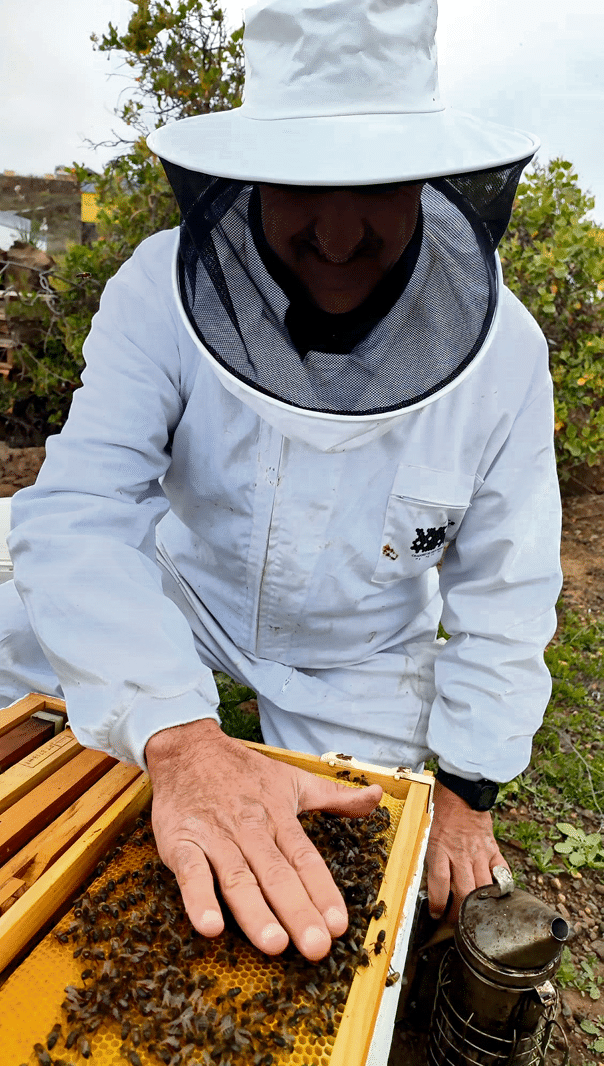
protect the canary black bee to prevent its disappearance in the medium term. That is the objective of a campaign launched by the breeders of the species to ask the administrations to declare Tenerife as a unique reserve in order to guarantee the conservation, recovery and selection of these native insects, considered “the best in the world” for their long life, high productivity and lack of aggressiveness.
The petition, which has the support of 1,500 signatures and the institutional support of municipalities such as Granadilla de Abona, Arona, Adeje, Guía de Isora, Santiago del Teide and San Miguel de Abona, was formally presented last week and will be sent to the Canary Islands GovernmentCabildo de Tenerife and the Ministries of Agriculture, Fisheries and Food and of Ecological Transition and Demographic Challenge.
“The bee is considered the most valuable insect for humans and nature, as it is the fundamental link in the food chain. Their tireless pollination work guarantees more than 40% of food production and 80% of plants depend on this process,” Juan Morales, president of the Canarian Black Bee Breeders (Crianca), told this newspaper, who did not hesitate. in ensuring that “if the bees end, the world ends”, since “without pollen there is no fruit and without bees there is no pollination or food”. In his opinion, if protection measures are not adopted, the breed will be “seriously threatened” within two years.
The practice of beekeeping in the Canary Islands has been characterized in recent decades by an “excessive production of foreign species, which has caused a gradual eradication of the local breed, which aggravates the danger of extinction”, warns from Crianca. But the biggest enemy is the Varroa mite, which affects both the young and the adult bees, whose damage not only comes from its plundering action, but also because it favors the widespread appearance of viral and bacterial infections.
The association, based in Granadilla de Abona, promotes as its main objective the breeding, protection and use of the Canarian black bee in the traditional agriculture of Tenerife. There are currently around 17,000 active hives on the Island, most of them in the South. It is estimated that the number of canarian black bee hives associated with Crianca scattered throughout the Archipelago exceeds 500.
From the association it is emphasized that “it is time to shout to the world that we do not depend only on the development of a war, the appearance of a virus, economic and geostrategic changes or power groups.” Its president sums it up in a comment: “It is time to understand, once and for all, that we depend on our mother earth and that animals, plants and living beings are fundamental to our existence.”
During the initiative’s presentation ceremony, the mayor of Granadilla de Abona, José Domingo Regalado, highlighted the work of Crianca and underlined the importance of Tenerife forming part of the protection network for the precious Canarian black bee, while the first lieutenant of mayor, Marcos González, congratulated the group for contributing their “grain of sand” in favor of the primary sector.















